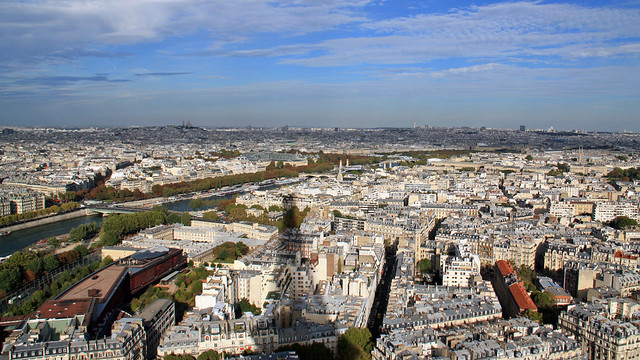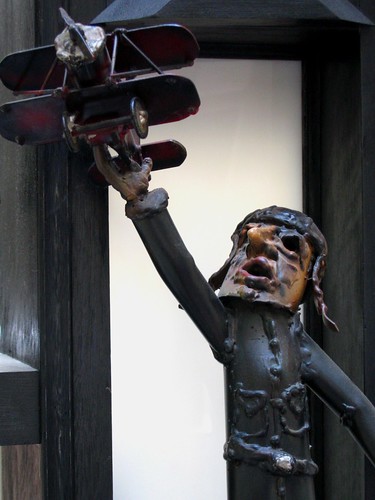Between my friends and I, we’ve been through our fair share of travel blunders and on occasion, panics – luckily not too many – and hopefully, we are all wiser now, having learnt from these mistakes of our past.

1. Overpacking: common tale, especially for newbies. I remember the times when I brought things “just in case I need it” and boy did I ever need them? No. Since then, I bring only what I know I will use, and if something really does crop up and I need that something, chances are I could buy it on the road too.
2. Silly savings: I like taking direct flights, or one with as little connections as possible. I have friends who prefer doing connecting flights in order to save some money on the tickets. But in this day and age where often, time is at premium, does a saving of $50 justify spending an additional 5 hours at the airports? Does your time not worth more than $10 per hour?
3. Inconvenient arrival time: airlines are trying to fill flights at unpopular slots by offering them at a cheaper price. However, if you arrive, say, past midnight at a remote airport without option of public transport at that time, you may well end up (1) taking taxi which would often be expensive, or (2) sleep at the airport for the night – if it’s allowed to being with. Neither options appeal to me. And when I travel solo, trying to get to hotel in a city I’m not unfamiliar with late at night doesn’t seem like a smart thing to do either, safety wise.
4. Losing common sense: there’s having fun, and there’s having irresponsible fun. Being away doesn’t mean you stop thinking and applying common sense where warranted. Don’t drink too much, don’t leave drinks unattended, practice safe sex, store your belongings safely, don’t leave bags unattended, avoid dark alleys when alone, and the list goes on.

5. Visa mishap: I don’t take chances with visa requirements and so do my friends. Most embassy/consulate pages have the information you’re looking for. IATA website is also useful for the checks. Don’t just rely on travel agents, as they may be unfamiliar with the area or inexperienced. My friend was once given the wrong advice and she was at transit point when she was told she needed a visa for her destination. To her relief, she could apply for the visa online quickly, so she got it all sorted before boarding her flight. No every traveller got so lucky when visa issues crop up.
6. Weather blunder: particularly important for anyone travelling light, what one packs should be what one would use at destination. Weather forecast is helpful in identifying the clothing items to pack. Sure, they’re not 100% accurate, but it beats being unprepared and greeted by drenching rain at your tropical sun destination because you didn’t realise it’s the monsoon season.
7. Money matters: it is prudent not to arrive anywhere without some local currency (admittedly, some currencies are hard to come by outside the country itself) and without knowing the exchange rate. Knowing the rate is vital to the budgetting process. And oh, do yourself a favour – always store some emergency cash separately from your main purse/wallet/pouch. You’ll never know when it’ll come handy.
8. Total upfront payment: it may feel like a good thing to do, paying for everything upfront before departure. However, this leaves little leeway for changes of plan without losing those money. For example, there’s nothing pleasant about staying in an unhygienic hotel/hostel for a week because you’ve paid for it in full. Try to choose a place where only a small deposit is required, and if deemed unsuitable for longer stay, then there’s possibility of moving elsewhere and lose just that deposit. Another example, if you’ve allocated insufficient/too much time for a particular city. Not having paid in full means the schedule can be adjusted accordingly instead of moving on to the next part of the trip at the wrong time.

9. Low on contact infos: with the advent of international mobile usage and heavy social network presence, this is likely a small issue, plus as adults, we don’t always need to account what we do to everyone. However, I still believe in informing at least someone of the rough travel plan together with details of accommodations booked etc. I don’t wish to disappear without a trace…
10. Lack of research: no, I’m not advocating detailed planning for every waking moment of the trip, but to have basic knowledge of the destination reduces the likelihood of unpleasant surprises while still leaving room for new adventures. For example, knowing when there’s a festive celebration cues you in to an opportunity to participate in the event but also to prepare you for possible associated inflation in costs for transportation, food and accommodation.
11. Ignoring your instinct: if something doesn’t feel right instinctively, play it smart by listening to your inner voice. This is not about matters of confronting your fear which may also feel instinctively alien, but of things that leave you uneasy after your assessment of the situation. The world is dynamic and things change. What may once be a safe quarter could now be at peril from gangland troubles. What may once be a reputable budget hotel may now be a motel of choice for adult trades. And so forth. It’s not an issue of bravado to stay put. It’s about managing risk and safety away from home.
12. Overdoing it: it’s very very tempting to try to do everything and it is not always possible. Don’t rush through one site to another just because you want to use all the vouchers of your museum pass. Don’t pack in a tour of seven countries in ten days just because the tour company says you can. Pace it out and enjoy yourself by appreciation, not by number of things you managed to check list.
What other advice(s) do you have for travellers on what not to do on the road, if they’re not already in the list above?

























